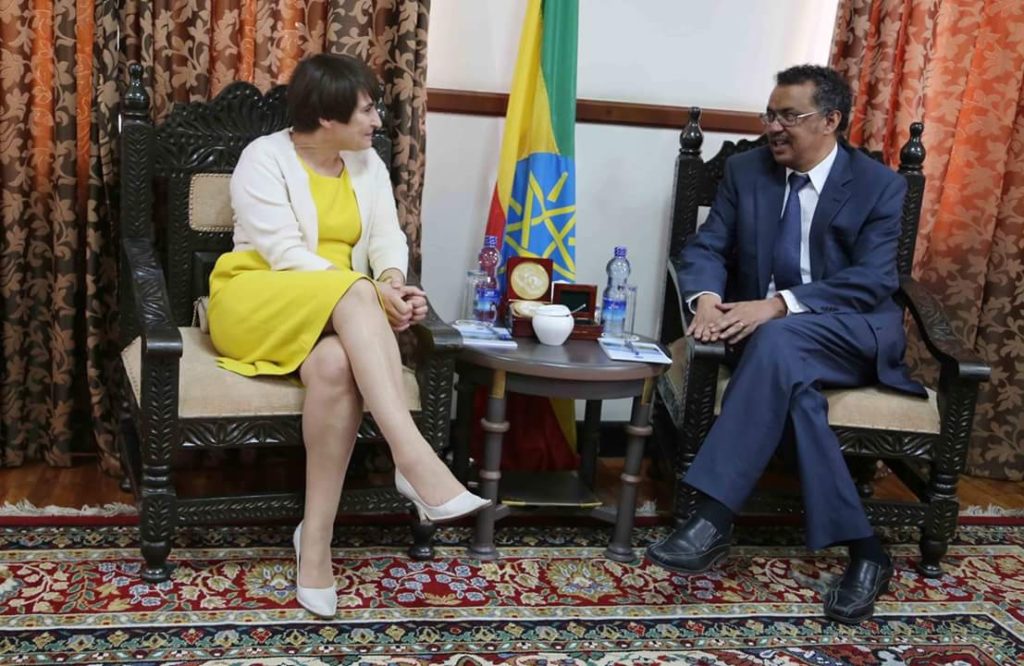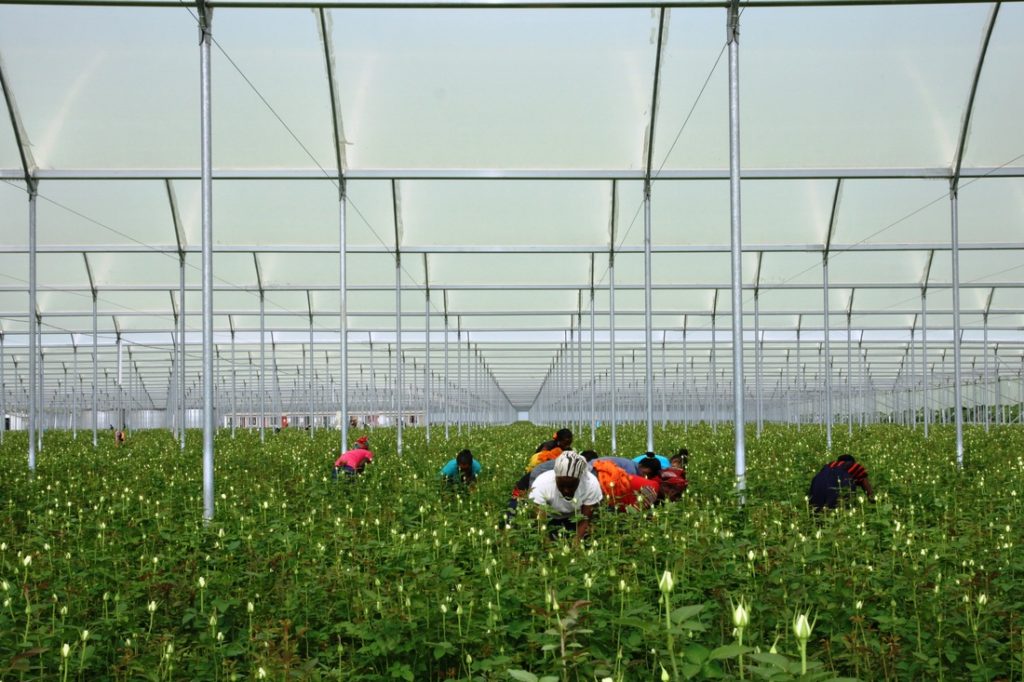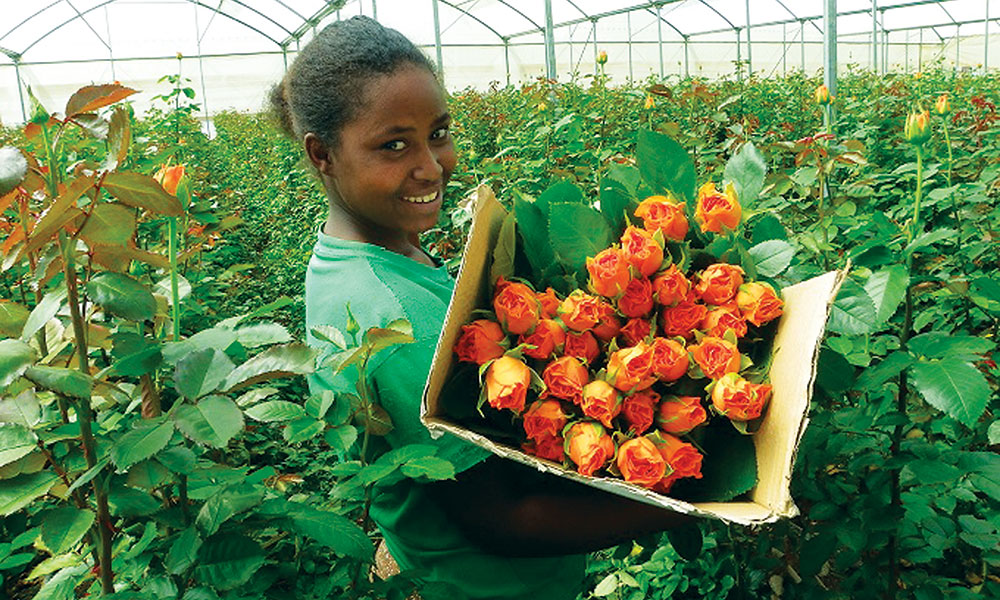This article was originally published in the 4th issue (October 2016) of The Ethiopian Messenger, the quarterly magazine of the Embassy of Ethiopia in Brussels.
In order to improve the efficiency of their development policy, some EU countries now link aid with trade. In Ethiopia, the Netherlands have found a particularly receptive partner for this innovating policy. The results of this partnership show that this new development paradigm can actually bear fruits and assure the prosperity of both partners.

A new paradigm
Pushed by economic constraints and the will to improve the efficiency of their development policy, most EU donor countries have started linking aid with trade over the past few years. In parallel, poorer countries like Vietnam, Ghana or Ethiopia developed faster than expected and began promoting inward investments as strategies to achieve sustainable development and create jobs.
It is in this context that the Netherlands launched in April 2013 “A world to gain”, a new agenda aiming at benefiting from the economic growth in Asia, Africa and Latin America through its longstanding aid relationship with developing countries. In Ethiopia, the Netherlands have found a particularly receptive partner for this innovating policy. The business and development relationship between the two partners has considerably grown for the past three years and the Netherlands is now the European country next to Turkey with the largest number of companies in Ethiopia, with 130 compared to 80 three years ago. The country played a substantial role in supporting Ethiopia’s success, proving that this new development paradigm can actually bear fruits and assure the prosperity of both sides of the relationship.
Ethiopia’s attractiveness
It is no coincidence that the Netherlands’ agenda was successfully implemented in Ethiopia. Ethiopia’s path to development rests on boosting manufacturing and exports to industrialize, and a central aim of Ethiopia’s two Growth and Transformation Plans (2010-2015 and 2016-2020) is to pull in international investment. The country is energetically working on this, as shown with industrial park construction, and it finds some attention from international investors: each month, the country hosts business delegations. Foreign investors are being offered tax breaks and other types of preferential treatment to help develop Ethiopia’s manufacturing, textiles and agricultural sectors. Ethiopia offers a comprehensive set of fiscal and non-fiscal incentives to encourage investment into priority areas, such as an exemption of customs duty or income tax exemptions for a period ranging between 1 and 9 years, depending on the specific activity and the location of the investor.
Besides preferential trade policies, international companies have also flocked to Ethiopia to take advantage of the country’s promising demographics and market potential – an increasingly educated population of almost 100 million people with an average age of 18, and a low cost labor pool which undercuts that of China by more than two-thirds. In addition, Economic growth has jumped to heights never known before in the country over the last ten years, with a 10.6 percent average annual rate of growth, and the country is known for making an efficient use of its financial resources, whether they come from the national budget, international aid or diaspora remittances. As a result, Ethiopia has attracted millions of dollars in investment and the business-friendly investment environment has convinced several companies to invest in Ethiopia.

The Dutch example
In Europe, the Dutch development cooperation policy is one of the most effective in adding value by combining aid and trade. The Netherlands’s Dutch Good Grow Fund (DGGF) finances Dutch SMEs willing to engage in emerging markets and provides funds to local SMEs in developing countries, focusing on young entrepreneurs, female entrepreneurs and companies in fragile countries. All selected projects are expected to have a direct impact on the development of the financial sector in low- and middle-income countries.
The “A world to gain” strategy divides the Netherlands’s partners into three groups: post-conflict and fragile countries that need assistance to reduce poverty (aid relationship), low and middle-countries with burgeoning economies (transitional relationships) and advanced economies, where the Netherlands’s main aim is to promote trade and investments (trade relationships). The Netherlands share a transitional relationship with Ethiopia, which means that they are linked by a combination of aid and trade. Apart from poverty reduction programs, the Netherlands also support Ethiopia in increasing its market access and improving its business climate. In other words, thanks to this strategy, Ethiopia – which remains one of the Netherlands’ 15 partner countries in development cooperation – has also become a substantial business partner for Dutch businesses.
Another interesting feature of Dutch companies is that they put a lot of efforts in order to create a sustainable work environment, as the Netherlands pays particular attention to corporate social responsibility, sustainable growth and partnership with local entrepreneurs. Companies that get financial support from the Dutch government need to comply to standards of international corporate social responsibility. This is monitored by the responsible government officers in the Netherlands. Dutch entrepreneurs are therefore taking into account issues of environmental protection in their activities, opting for higher investments and higher scale technologies (such as irrigation systems that collect the water and reusing it in the horticulture sector) and investing in environmental-friendly products (bio-fungicides, etc).
Criticism
However, this new trend has also attracted criticism. Some NGOs are worried that Dutch interests might take precedence in development policy and that the Netherlands could end up subsidizing their private sector in the name of development. They also raised concern about the wages of the local employees, arguing that the low wages of some companies could not get them out of the poverty cycle. Questions about the impact of the Aid for Trade strategy emerged: can the needs of donor countries really meet the needs of developing countries? Will European companies not supplant local businesses? Does this approach have a real impact on development?
In practice, the majority of Dutch companies operating in the country are bringing benefits to their employees. Many Dutch companies give priority to members of the local communities, in particular in the labor-intensive agricultural sector, about 99% of their employees are Ethiopian nationals. So far, more than 60,000 jobs have been created as a result of Dutch investments in Ethiopia and salaries are 40% higher than average wages in the same sectors. Companies like Holland dairy produces milk and cheese by collaborating with small Ethiopian farmers, helping them to increase their revenue. Another company, Moyee Coffee, is producing fairer coffee to increase the revenue of local producers (up to 300% more income), most notably by roasting the coffee on the ground and by sharing the company’s shares equally with the local producers.
In several instances, Ethiopian employees working for Dutch companies launched small agricultural businesses of their own with a technical support from the Dutch Embassy in Addis Ababa. The success of the Dutch example is not just about the numbers, but also about the way of doing business, the quality and durability of the relation. Dutch investments helped creating tens of thousands of jobs in a country where 2 to 2.5 million young people arrive each year on the labor market and contribute to increase the exports of Ethiopia, whose balance of trade is still negative.
But Dutch businesses have been benefiting from Ethiopia’s booming economy. The profit of Bavaria reached the record sum of 531 million EUR in 2015, in a large part due to the investment in Ethiopia with the brand Habesha and Bavaria’s collaboration with 8000 local partners. Its distribution network that has expanded throughout the country and the capacity of the brewery has doubled to 600,000 hectoliters this year. The Dutch brewer, Heineken, bought out two of Ethiopia’s state-owned beer labels for $163m in 2011 and is hoping for similar success.
A long-lasting impact
Beyond its valuable contribution in terms of employment and economic growth, it is also worth asking if the Aid to trade approach bring long-term results. It appears to be the case, as Dutch investments have evolved, both quantitatively and qualitatively, over the past years. If the majority of Dutch companies in Ethiopia (about 70 companies) are investing in the horticulture sector, their areas of interests have been expanding, and they are now investing in seeds, dairy, poultries or spices. More recently, they have started investing in more complex activities such as food-processing, manufacturing, packaging. The focus is now on technology transfer and capacity building. Some companies do import substitution, which produces finished products locally so the country does not have to rely as much on imports, fulfilling a growing demand for materials. Moreover, when Dutch companies establish themselves in Ethiopia, they often remain for many years. That continuity is of great value and often brings a more lasting contribution to the renaissance of the country than more classic forms of development. This is not to say that Ethiopia does not need aid anymore. But as the country remains part of the world’s least developed countries, the current high volume of development aid given to Ethiopia allow the government to channel its own resources into other areas and has been instrumental in supporting the government’s efforts. The Ethiopian government hopes that trade and investment will replace aid in the coming years and that the country will become self-sufficient in the near future.
The success encountered by Dutch investments in Ethiopia should inspire other EU governments, who tend to perceive investment in African countries as riskier, to follow the Netherlands’s example. On this matter, Jean-Claude Juncker’s announcement of the creation of a € 3.35 billion European External Investment Fund (EEIF), focused on the EU’s neighborhood countries and Africa to address the root causes of migration and to promote sustainable investments in these regions, is a most-welcomed development. If successful, this ambitious fund could significantly increase the ability of the EU to crowd-in private finance and stimulate reforms towards more decent and sustainable jobs and economic activities. This development would mark a new chapter for successful European investments in Ethiopia.




